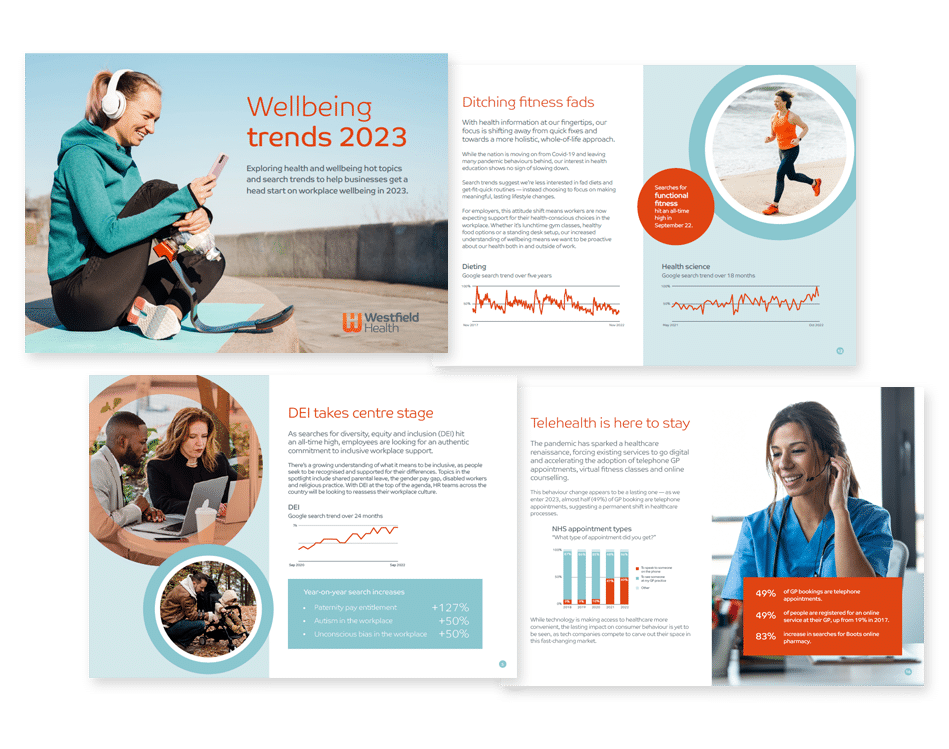It’s not surprising that our recent Wellbeing Trends report identified DEI (diversity, equity and inclusion) as one of the most important topics for HR leaders in 2023, with Google searches for the term doubling over the past two years.
There’s a growing understanding of what it means to be inclusive, as people make their voices heard and look to be recognised and supported for their differences. Topics in the spotlight recently include shared parental leave, the menopause, neurodiversity and religious practice.
While these issues are often brought to our attention thanks to social media awareness days, employers need to make sure that their efforts to recognise DEI issues are authentic. For leaders, this means reflecting on how they can foster genuine understanding and allyship in the workplace.
Inclusive workplaces help create an environment where individualism is celebrated and leaders value the unique experiences that each colleague brings to the team.
DEI policies should help people feel supported no matter who they are or how they work. And with our work and personal lives more blended than ever, managers will be expected to handle difficult conversations on topics that have previously been considered taboo.
While unconscious bias training and awareness day campaigns can help educate employees on common DEI issues, it’s important to look beyond the trends and find out what really matters to your people.
An inclusive workplace culture encourages open dialogue across the business, and managers provide an important link between colleagues and the boardroom. A coaching approach to management, including regular 1:1s, can help people feel comfortable speaking up so team leaders can act in the best interest of the individuals on their team.
This knowledge will allow decision makers to make changes that address the real challenges that colleagues are facing. Some first steps might include:
- Revisiting your company values and setting goals to help make DEI a core priority across the organisation. Remember that while DEI issues are often grouped together, you’ll need to take action around each individual strand (diversity, equity and inclusion) for your strategy to succeed.
- Creating a DEI working group so colleagues can get their voices heard and drive change in a safe space, regardless of internal hierarchy.
- Trialling a blind recruitment process with emphasis on matching candidates’ values rather than specific qualifications or characteristics. Try to think about what attributes or attitudes are really required for each job role and which could be taught.
- Reviewing your flexible working policy to allow employees to work in a way that suits their individual needs, increasing equity in the workplace. This should also include a strategy to help remote workers feel included from afar.
Download our trends report for more useful insights
For a more detailed look at the issues at the top of HR’s priority list for 2023, download our Wellbeing Trends report.
The report looks at emerging trends in health and wellbeing, including preventative healthcare, the future of remote work and cost-of-living support for employees.
